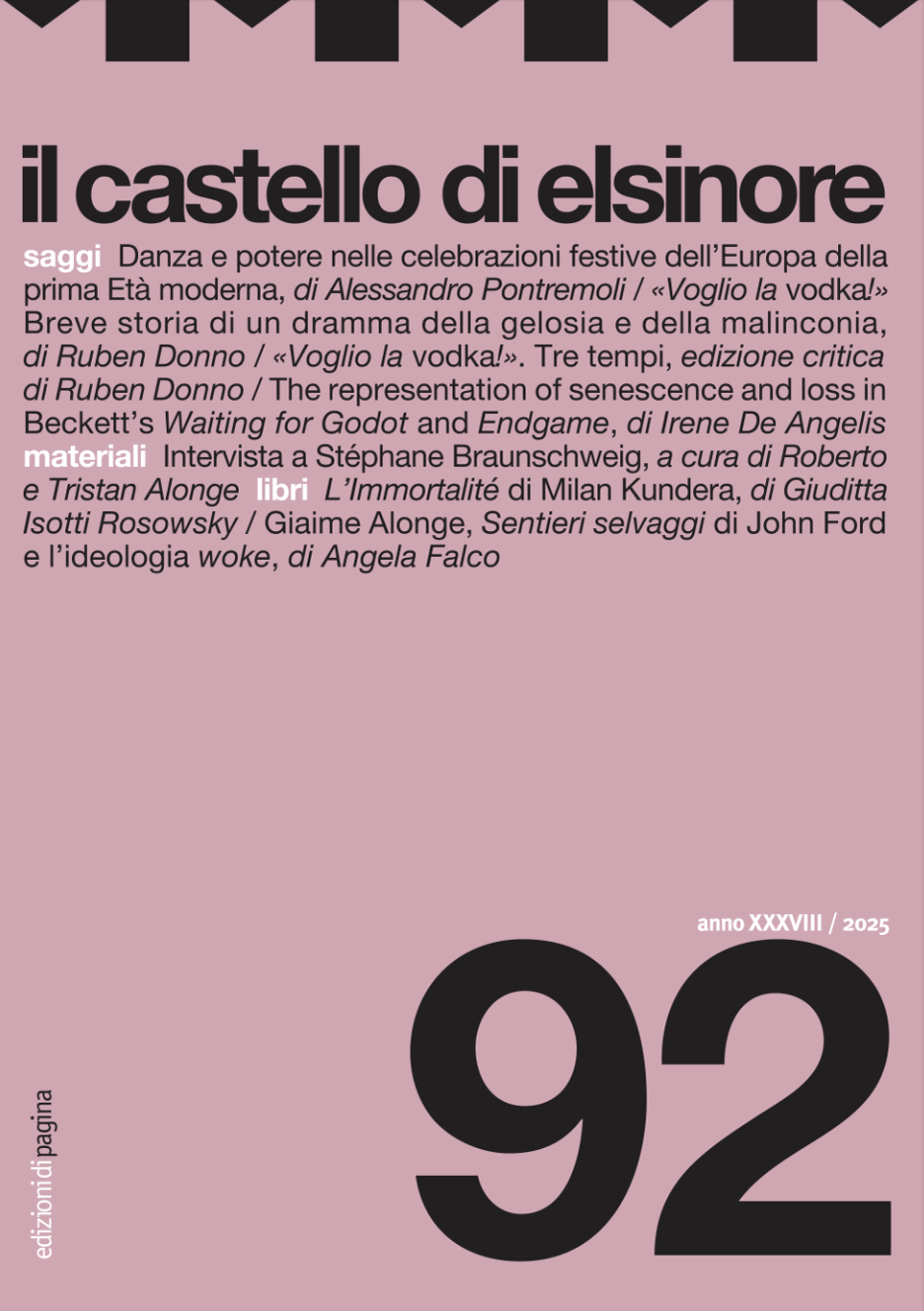- Soffici,
- Russia,
- Melancholy,
- Jealousy,
- Vodka
Copyright (c) 2025 Ruben Donno

This work is licensed under a Creative Commons Attribution 4.0 International License.
Abstract
The purpose of this article is to reconstruct the historical and cultural context that allowed Ardengo Soffici to elaborate the unpublished manuscript entitled «Voglio la Vodka!» Tre tempi. The main source is precisely Soffici’s autobiography which, dwelling on the years in which Soffici lived in Paris (1900-1914), highlights some important figures who brought the Tuscan writer closer to the Russian world: first and foremost Hélène d’Œttingen, Serge Férat, and the artist Aleksandra Ekster. The two women, together with other Russian intellectuals, would in fact be indelible presences in Soffici’s later drama. The unpublished work, composed between 1944 and 1945 during the period of detention in the fascist camp in Terni, shows, in addition to the ambivalent relationship of encounter and clash between West and East, how at the centre of human action there are crystallised, and undoubtedly autobiographical, feelings of jealousy and melancholy towards a past to be cherished and remembered.

